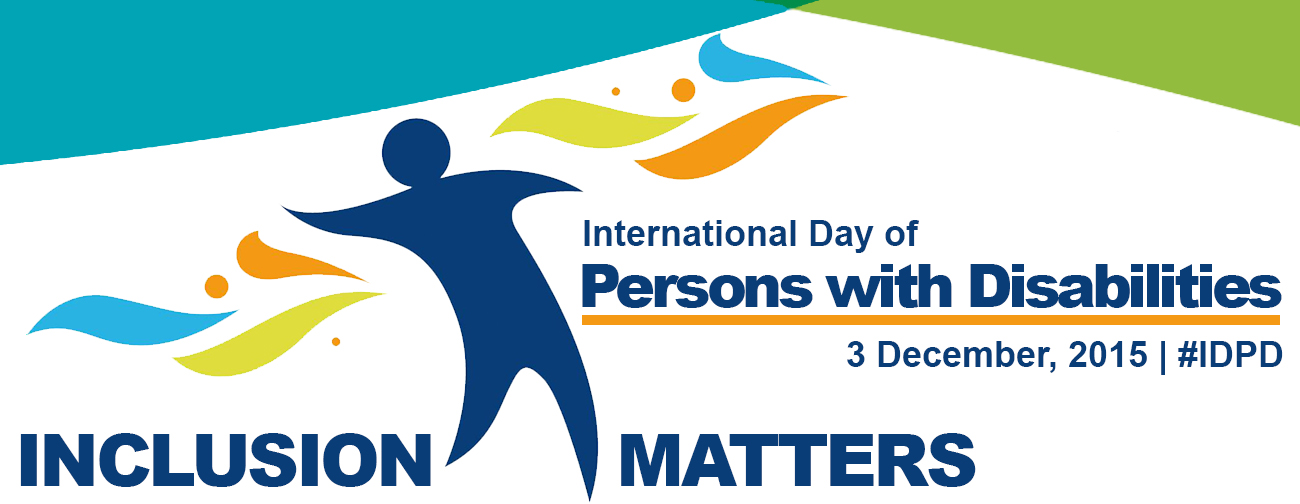December 3 is the United Nations International Day of Persons with Disabilities. The theme this year is “Inclusion matters: access and empowerment for people of all abilities.” I’m doing a small giveaway to help raise awareness.
This year the Human Rights Commission is leading a nationwide campaign to generate engagement across New Zealand with the UN Day of Persons with Disabilities on Thursday 3 December. It’s labelled “a day of celebration and focus for people with disabilities.”
I’m a bit cynical about stuff like this but let’s face it, there’s not that much of it happening, and inclusion does matter.
By ‘stuff like this’, I mean commsed-up corporate-lead Happy Happy let’s celebrate people with disabilities “campaigns.” I’ve been looking back at past posts, I have written so damn much about what life with disability is like over the past three years. I continue to write about it, as do many of my friends. What I’d love to see is upwards support of this work, rather than downwards “here’s what people with disability want from you.”
Anyway, I should stop being negative about something that is essentially good.
As I mentioned, the international theme of the day this year is ‘Inclusion matters: access and empowerment of people of all abilities.’
We can all help to realise the rights of disabled people by including them in our workplaces, in our schools and in our communities. – Disability Rights Commissioner, Paul Gibson.
Orange has been chosen for “the colour of inclusion” (cough) and people will be wearing orange wristbands supplied by the HRC to show support on the day.
GIVEAWAY: Orange Wristbands and a Writehanded Poem
To help raise awareness of the Day and what it means, I’m giving away FIVE ORANGE WRISTBANDS to five people. They will also come with a poem about illness written by me.
Enter by sharing this post on Twitter and/or Facebook, and commenting below to let me know.
I’ll be picking randomly in the next couple days so I can send these out in time.
The HRC website says that observance of the day “provides opportunities for participation by all stakeholders to focus on issues related to the inclusion of persons with disabilities in society and development, both as beneficiaries and agents of change.”
With that being said, I’m really interested to see what uptake there is, especially by government departments and parties. It’d be great to see some sort of public commitment to changes that involve more inclusion.
Take Action: A major focus of the Day is practical action to highlight how that year’s theme can impact the inclusion and contribution of persons with disabilities in social life and development on the basis of equality. Highlight best practices, innovative technological solutions for the full inclusion of persons with disabilities in their societies.
The HRC says: “The estimated one billion people living with disabilities worldwide face many barriers to inclusion in many key aspects of society. As a result, people with disabilities do not enjoy access to society on an equal basis with others, which includes areas of transportation, employment, and education as well as social and political participation. The right to participate in public life is essential to create stable democracies, active citizenship and reduce inequalities in society.
Persons with disabilities must be able to fulfil their role in society and participate on an equal basis with others. It is important to focus on the ability and not on the disability of an individual. By promoting empowerment, real opportunities for people are created. This enhances their own capacities and supports them in setting their own priorities. Empowerment involves investing in people – in jobs, health, nutrition, education, and social protection.”
Three sub-themes for IDPD 2015 are:
- Making cities inclusive and accessible for all
- Improving disability data and statistics
- Including persons with invisible disabilities in society and development
For me, inclusion would mean things like:
– I don’t get turned down for jobs because I can’t work 40 hours a week
– I could do further education in my chosen field
– I don’t get labelled an “activist” or “a blogger” simply because I’m not a full-time paid writer and I’m outspoken about minority rights.
– There would be reduced rates for transportation like Metlink for people with disabilities, because often this is my only option for getting places and it can cost a fortune.
If you have disabilities and other ideas about what inclusion means for you, please comment – and add links to your own writing if you have them.
Thank you.



I can see how ‘inclusion’ can sound a little icky. Gotta say I love the colour orange though.
You’re awesome and an inspiration!
Inclusion would mean:
* lever door handles instead of doorknobs
* wide aisles and low tables
* supermarket shelves one bay lower than they are now
… oh for fuck’s sake, just use your common sense and realise you might need this shit one day too.
(BTW hi, shared post on Twitter but likely would’ve said something anyway)
Thank you! Yes, so much of it is common sense. And empathy though too, able people need to think more empathetically when designing things or writing policy or whatever.
It was eye opening showing a friend who uses a mobility scooter around Wellington. So many shops, cafes etc. were inaccessible to her. Even small steps up to the entrance of a store were impossible for her to negotiate. I had to yell ice cream flavours out the door of a dairy on Oriental Parade to her so she could choose.
She was treated as a nuisance as well by staff. I’d love it if we able-bodied people could stop treating disability like it’s infringing on us.
There’s so many easy things in tech that we can do to make life easier for those with disabilities: contrast, font choice, screenreader metadata. But we get lazy and it’s not good enough.
P.S. Have shared this on Twitter 🙂
Yeah there’s a lot of things you just don’t notice if you’re able-bodied. Because I went from being totally able to disabled, I now tackle all these things and it’s been huge. Even things like the fact that the button for the bus to stop is way above my head and on some days I can’t stretch like that. So much gets taken for granted.
Inclusion for me means space, both physically and emotionally. It means that I am acknowledged and respected. It means that I don’t have to exert spoons just to get my needs addressed.
I think city design and access has a huge part to play in inclusion. For me, I sometimes need a place to sit, so a city that provides me with clean, comfortable and regular places to sit makes it much easier for me to get around. Reliable public transport is also an essential. On tough days it makes all the difference that I live on a regular bus route.
Social inclusion means receiving respect around what my limits are, and being able to participate without crossing them. It means not having to tell people all the time, but if I need to share, knowing that I will be met with empathy.
Inclusion benefits everyone, but it’s also something we all deserve. Spaces work better when they cater for the diverse ranges of bodies that make up people.
So well articulated, as usual Jem. I hope it is ok if I paste this into the post for Thursday, which is about what inclusion really means for people. With your permission and attribution of course.
I’m very happy that invisible disabilities are one of the subthemes this year. Only this morning I had a hard time convincing a shop assistant that I needed to use a fitting room with a chair in it. The chair was in their only large fitting room, which was reserved for customers in a wheel chair. You’ll understand that I don’t feel like explaining about joint stiffness, pain and lack of balance every time I shop. There needs to be more awareness about invisible illness/disability. Part-time work should also be more widely available, like in Europe, and without having to miss out on opportunities for promotion and wage rises. Because people who get tired easily due to (in)visible illness are not less skilled, knowledgeable or motivated. Once we achieve that (among other things), there will be more inclusion.
PS: Will share on Twitter
Me too. Invisible disability is such a huge thing. How rude that you had to “convince” them. You’re not required to given an explanation. Totally agree with the points on work and how important that is to inclusion.